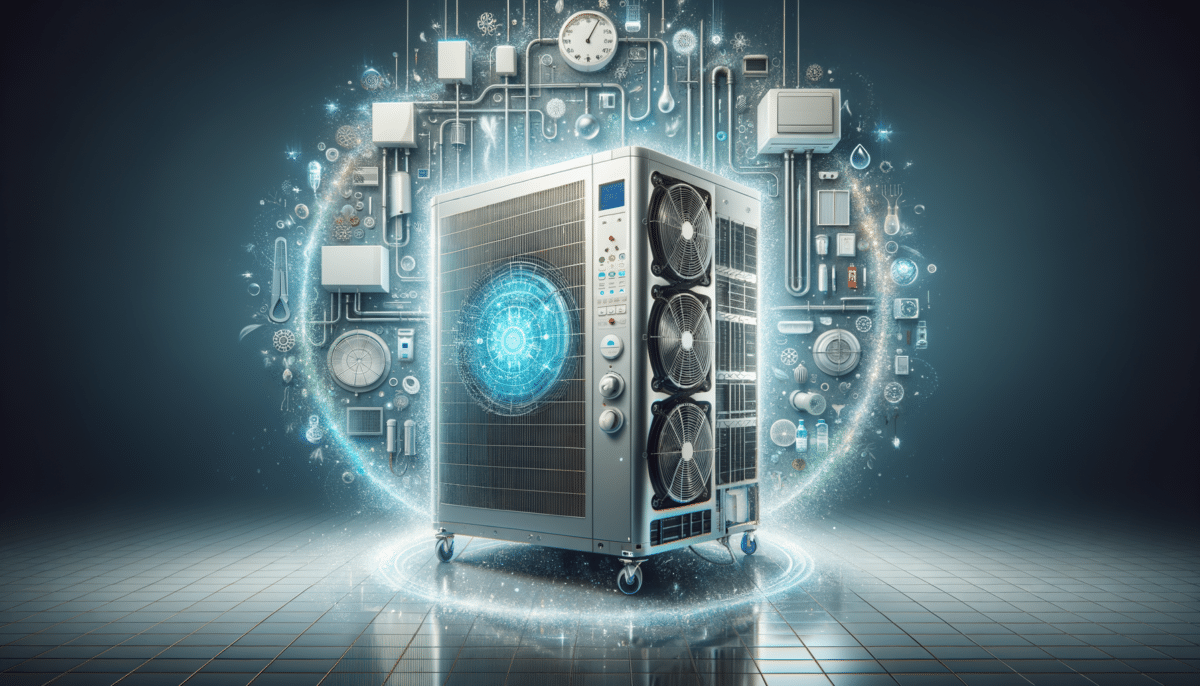Understanding HVAC Systems
Heating, Ventilation, and Air Conditioning (HVAC) systems play a crucial role in maintaining indoor air quality and comfort. These systems are responsible for regulating temperature, humidity, and air purity within buildings, making them essential for both residential and commercial spaces. The complexity of HVAC systems can vary significantly, from simple window units to intricate central systems that serve entire buildings.
At the core of any HVAC system are three primary components: the heating unit, the ventilation system, and the air conditioning unit. The heating unit, often a furnace or heat pump, warms the air, while the air conditioning unit cools it. Ventilation, on the other hand, is responsible for exchanging indoor air with fresh outdoor air, which is vital for removing pollutants and maintaining oxygen levels.
One of the critical aspects of HVAC systems is their ability to filter air. Filters trap dust, pollen, and other airborne particles, preventing them from circulating indoors. However, the efficiency of these filters can vary, with higher-grade filters offering better protection against pollutants. Regular maintenance, including filter changes, is essential to ensure the system operates efficiently and effectively.
In summary, HVAC systems are integral to providing a comfortable and healthy indoor environment. Understanding their components and functions can help homeowners and building managers make informed decisions about installation, maintenance, and upgrades.
The Importance of Clean Air
Clean air is a fundamental necessity for health and well-being. Poor indoor air quality can lead to a range of health issues, from minor irritations such as allergies and headaches to more severe conditions like respiratory diseases and cardiovascular problems. According to the Environmental Protection Agency (EPA), indoor air can be two to five times more polluted than outdoor air, making it a significant concern for many households.
Several factors contribute to indoor air pollution, including volatile organic compounds (VOCs) from cleaning products, mold, pet dander, and outdoor pollutants that seep indoors. An effective HVAC system can help mitigate these issues by filtering and circulating clean air throughout the space.
To ensure clean air, it’s crucial to regularly inspect and maintain HVAC systems. This includes checking for leaks, ensuring proper ventilation, and using high-efficiency particulate air (HEPA) filters that can capture up to 99.97% of particles as small as 0.3 microns. Additionally, integrating air purifiers and dehumidifiers can further enhance air quality by reducing humidity levels and capturing additional pollutants.
Ultimately, prioritizing clean air is not just about comfort; it’s about safeguarding health and enhancing the quality of life for everyone in the household.
Common HVAC Mistakes and How to Avoid Them
Despite the importance of HVAC systems, many homeowners make common mistakes that can compromise their efficiency and air quality. Understanding these pitfalls is the first step toward avoiding them and ensuring your system operates optimally.
One frequent mistake is neglecting regular maintenance. HVAC systems require periodic inspections and servicing to function efficiently. Failure to do so can lead to reduced performance, increased energy consumption, and even system breakdowns. Scheduling annual maintenance checks with a professional can help identify and address potential issues before they escalate.
Another common error is improper thermostat settings. Many people mistakenly believe that setting the thermostat to extreme temperatures will heat or cool a space faster. However, this can put unnecessary strain on the system and lead to higher energy bills. Instead, it’s advisable to use programmable thermostats to maintain consistent temperatures and optimize energy use.
Lastly, overlooking the importance of proper insulation can also impact HVAC performance. Poor insulation allows air to escape, forcing the system to work harder to maintain desired temperatures. Ensuring your home is well-insulated can significantly enhance HVAC efficiency and reduce energy costs.
By avoiding these common mistakes, homeowners can ensure their HVAC systems provide clean, comfortable air while minimizing energy consumption.
Technological Advancements in HVAC Systems
The HVAC industry has seen significant technological advancements in recent years, aimed at improving efficiency, sustainability, and air quality. These innovations are transforming how we think about and interact with our indoor environments.
Smart thermostats are among the most notable advancements. These devices allow users to control HVAC systems remotely via smartphones or other devices, enabling more precise temperature management and energy savings. Many smart thermostats also learn user preferences over time, further optimizing system performance.
Another innovation is the integration of advanced filtration systems. Modern HVAC systems can now incorporate high-efficiency filters and air purifiers that target specific pollutants, including allergens, bacteria, and viruses. This is especially important in the context of global health concerns, where maintaining clean indoor air is paramount.
Energy efficiency is also a focus of recent developments. New HVAC systems are designed to consume less energy while providing the same or better performance. This not only reduces utility bills but also minimizes environmental impact. Some systems even utilize renewable energy sources, such as solar power, to further enhance sustainability.
Overall, these technological advancements are making HVAC systems more efficient, user-friendly, and environmentally responsible, helping to ensure cleaner air and a healthier planet.
Practical Tips for Improving Indoor Air Quality
Improving indoor air quality is a multifaceted endeavor that requires attention to several aspects of home maintenance and lifestyle. Here are some practical tips to help enhance the air you breathe indoors:
- Regularly clean and replace HVAC filters to ensure they are effectively trapping pollutants.
- Use natural cleaning products to reduce the presence of VOCs and other harmful chemicals.
- Ensure proper ventilation by opening windows and doors when weather permits, or using exhaust fans in kitchens and bathrooms.
- Incorporate indoor plants that can naturally purify the air, such as spider plants, peace lilies, and snake plants.
- Minimize the use of candles and incense, as they can release soot and other pollutants into the air.
By implementing these strategies, you can create a healthier indoor environment that supports well-being and comfort for everyone in the household.
